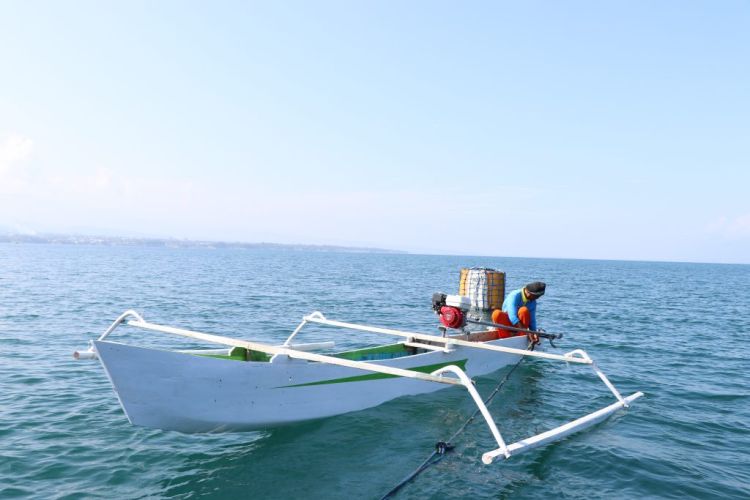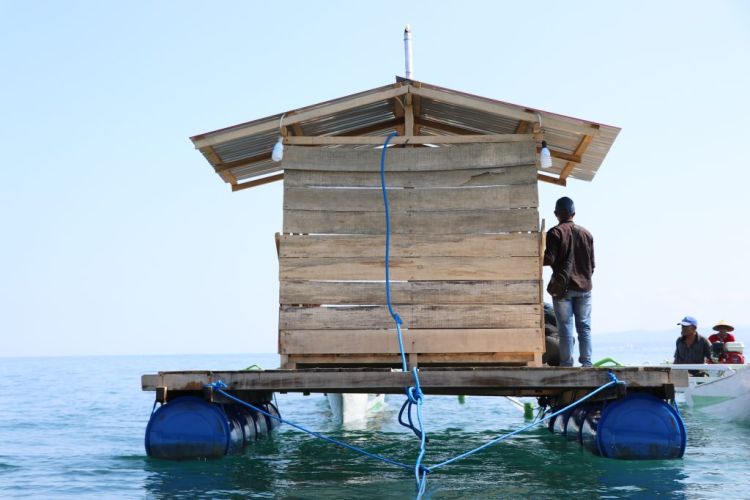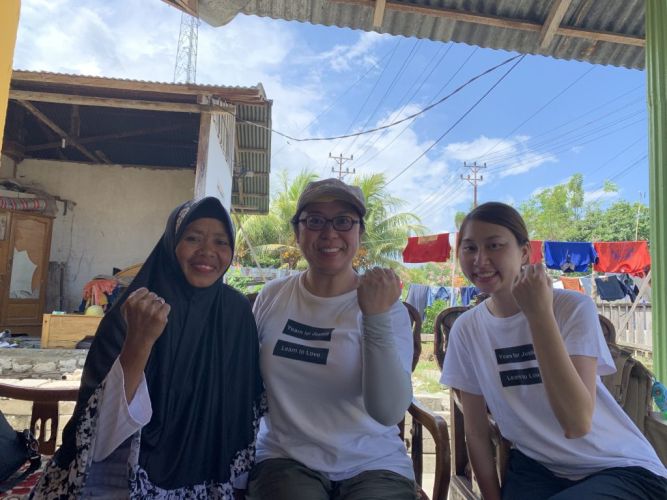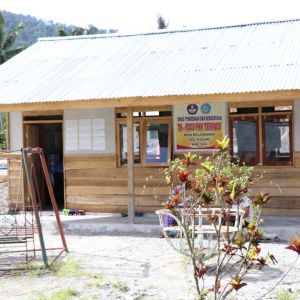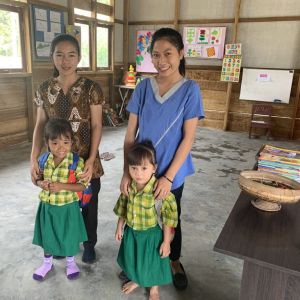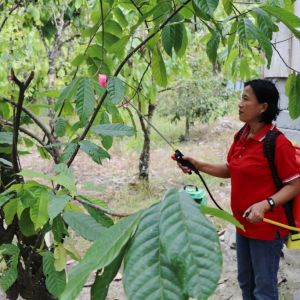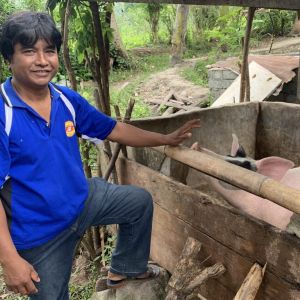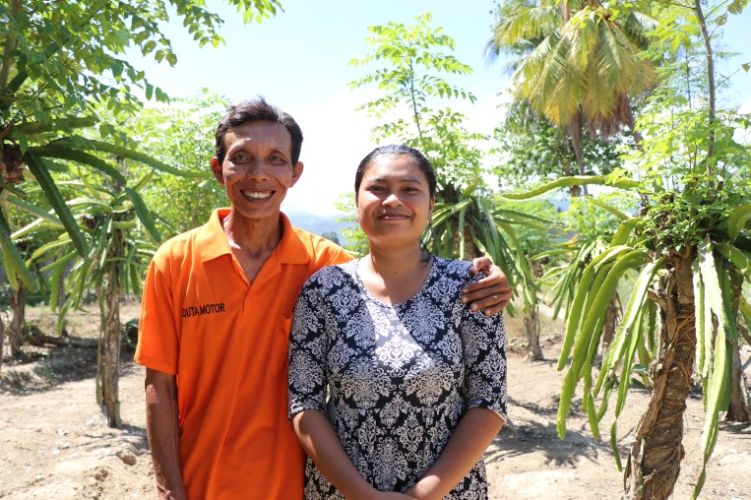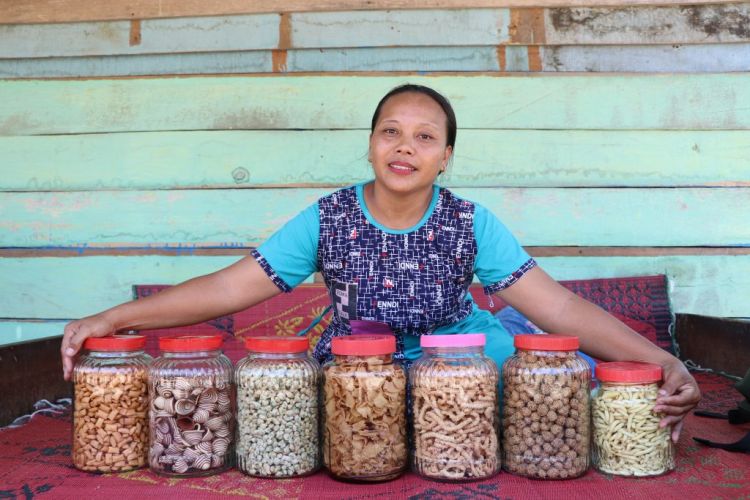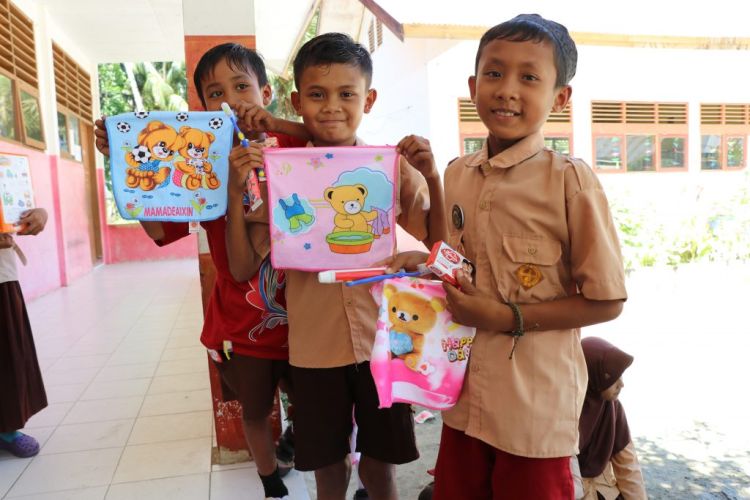Cynthia (left) and mother, residents of the Boladangko Village
In January this year, CEDAR commenced phase two of its relief and recovery work in central Sulawesi of Indonesia. Our partner PESAT has been working with six post-disaster communities and its people by providing assistance on livelihood, education, and psychosocial support.
Thank You from Indonesia (video in Chinese)
As a response to the previous visit of the affected area, CEDAR initiated a phase two work proposal with PESAT which aimed to benefit more than 770 families, including two of the piscatorial communities, Bamba and Talise. We observed that remains could be found along the sea from earlier damage, and a large residential area was razed to the ground and labeled as a dangerous zone as a result of the detrimental tsunami. Some people have started rebuilding their homes, while others remained in tents or relatives or neighbours’ shelters,waiting for the local authority to dispense compensation and land.
Our partner started communicating with fishermen in three piscatorial communities to learn about their basic needs and demands. As a result, fish aggregating devices, fishing boats, and fishing nets were equipped for them. When we visited, the fishermen were making good use of these newly made devices to resume activities for livelihood. Besides, training of food processing is introduced to women which encourage the sales of preserved fried fish (watch following video about the food processing machine).
- Anisa’s (first left) house was washed out by the tsunami, she was hit by it and her parents’ lives were both taken by the waves. In retrospect to the interview with Anisa last year, she was still deeply traumatized by the incident. As we visited her again this year, she said that she has motivation and hope to recover, and her brother will be back at fishing after receiving new fishing boat.Anisa’s (first left) house was washed out by the tsunami, she was hit by it and her parents’ lives were both taken by the waves. In retrospect to the interview with Anisa last year, she was still deeply traumatized by the incident. As we visited her again this year, she said that she has motivation and hope to recover, and her brother will be back at fishing after receiving new fishing boat.
Our colleague Rebecca explaining the operation and advantages of the food processing machine. (Video in Chinese)
When in Palu, we were delighted to see most of the infrastructures and buildings being restored, and the airport was back in operation. However, two hours’ drive away from the city in the rural area, many houses could be seen in a relatively poor condition. In Boladangko, a community that we visited last time, we built a temporary classroom with sanitary facilities attached for children to return to school. Boladangko is one of the unfortunate areas in the earthquake, its land, houses, and people’s livelihood were significantly affected. To help villagers resume to their livelihoods, we provided them with pigs and organic fertilisers.
Besides Boladangko, we also built temporary classrooms, distributed organic fertilisers and farming tools in a few other communities. In addition, the PESAT team help children to ease their post-traumatic emotions though games, songs, and value education in six communities. In three of these communities, football teams were set up for youths to meet and bond through sports training.
In phase two, we have also allocated funds to support the work of Integral Alliance (IA) members: the cash transfer programme of Food for the Hungry and the post-disaster restoration work of World Renew. Food for the Hungry’s cash transfer programme will enable flexibility for the affected families to use money received in rebuilding or refurbishing houses, in repurchasing livelihood tools, or in meeting other needs. On the other hand, World Renew will focus on the restoration of Sigi District, which was one of the most affected districts. Our work include training mason on house construction, building of latrines, hygiene promotion, livelihood training, and psychosocial support training.
CEDAR has set up Emergency Relief and Disaster Preparedness Fund, so that we can reach and respond to disasters when it happens, and support disaster prevention work in communities to minimise disaster impact. If you would like to support by donating, please tick “Relief” from the list.
*Integral Alliance is a global alliance of 23 Christian relief and development agencies, working together to present a more effective response to poverty worldwide. CEDAR Fund is one of the member agencies.
donation method
(Please indicate “Relief” or “Emergency Relief and Disaster Preparedness Fund”)
Cheque
Please make it payable to CEDAR FUND
Direct Deposit
HSBC: 004-600-385678-001
BEA: 015-185-68-00931-7SSA
BOC: 012-581-2-020114-7
DBS: 016-478-001364162
Faster Payment System
FPS ID: 3354016 or scan the below code in the online banking
After donation, please send a completed Donation Form, enclosing with cheque, bank-in slip or screenshot of successful payment along with your name, contact phone number and mailing address to us via mail, email or WhatsApp.
Address: CEDAR Fund, G.P.O. Box 3212, Hong Kong
Email: sharing@cedarfund.org
WhatsApp (for donation matters only): 5160 7549
- CEDAR is an approved charitable institution and trust of a public character under section 88 of the Inland Revenue Ordinance. Please visit Inland Revenue Department website for details.
- CEDAR Fund will issue a receipt for a donation of HK$100 or above for tax deduction. For a donation of less than HK$100, please get in touch with us to issue a receipt.
- Please DO NOT fax any donation information.
If the donation exceeds the above mentioned allocation of funds, the excess amount will be transferred to CEDAR’s ‘Emergency Relief and Disaster Preparedness Fund’. The fund will enable us to respond to immediate needs, and support disaster mitigation in poor nations always being hit by disasters to reduce the amount of devastation.


